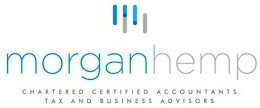I have been approached recently by a couple of our landlords asking if I thought they should incorporate their property portfolio (put it into a limited business) to avoid paying additional tax. They had read articles in the press that suggested that this is what most landlords are now doing.
Many landlords will have been affected by recent tax changes, and more are likely to be affected in the future, so this is a legitimate question – but is incorporation really the best solution for everyone? Not being a tax adviser myself, I contacted my own accountant Richard Reeves, of Morgan Hemp Accountants, Swansea, to discuss the pit-falls.
What are the New Tax Changes for Landlords?
- End of the Wear and Tear allowance (furnished properties previously benefitted from a 10% tax allowance)
- Restricted tax relief on the interest/charges element of buy-to-let mortgages (tax will be due on the interest element of a buy-to-let mortgage)
Unintended Consequences
Richard explains, “While the measure only affects higher and additional rate taxpayers, this bracket includes a significant amount of landlords. The new legislation will result in more landlords being pushed into higher rates of tax due to the way the relief on mortgage interest will now be calculated under the new legislation. This measure also affects those residential landlords who are more highly geared i.e. with a medium to high percentage of mortgages/loans.” Below is an example of how the change would affect a landlord with a &40,000 per annum employment and a rental portfolio which is highly geared:
| Before Changes(2016/2017) | After Changes(2020/2021) | |
| Employment Income | 40,000 | 40,000 |
| Gross Rents Received | 100,000 | 100,000 |
| Other Rental Costs | 20,000 | 20,000 |
| Loan Interest | 70,000 | 70,000 |
| Taxable Rental Profit | 10,000 | 70,000 |
| Gross Taxable Income | 50,000 | 120,000 |
| Personal Allowance | 11,000 | nil |
| Tax Due, Basic Rate @ 20% | 6,400 | 6,4000 |
| Tax Due, Higher Rate @40% | 2,800 | 35,200 |
| Total | 9,200 | 41,600 |
| Less Interest Relief @20% | nil | 14,000 |
| Next Tax Liability | 9,200 | 27,600 |
The underlying rental profit is unchanged at &10,000, but the tax payable increases by &18,400. &4,400 of this increase is due to loss of the tax free Personal Allowance as, in this example, the taxable income is now &120,000 rather than &50,000.
Other Consequences
There are other potential tax consequences as a result of the change in legislation:
- The High Income Child Benefit Tax Charge may have to be paid if the taxpayer is in receipt of Child Benefit and taxable income exceeds &50,000.
- Student Loans repayments will increase as a result of the increase in taxable income.
What is the appeal of incorporating, and what are the risks?
The legislation changes only affect individuals and not limited companies (this is where all the excitement to incorporate property portfolios has come from). Limited company landlords can subtract mortgage interest costs from their rental income before calculating their corporate tax. This option is certainly attractive for higher rate tax payers with a large portfolio and big mortgages. However, this option needs to be considered very carefully. Some not-so-obvious issues and pit-falls to consider are:
- Capital Gains Tax when incorporating.
- Stamp Duty Land Tax when incorporating.
- Higher lending rates for companies than individuals (e.g. BTL mortgages vs. limited company mortgage borrowing)
- Additional administration costs (accountancy fees) of running a limited company.
- Ongoing extraction of profits and proceeds from property sales from the company.
- Tax on dividends (the money you take out of the business) currently at 7% over &5,000
- The Government may decide in the future to change the way that incorporated property businesses are taxed, thusly closing this loophole.
Making a Decision
Being a buy-to-let landlord is a business which means, as with any good business, you need to plan for tax. What concerns me is that many landlords still don’t know what these changes mean for them, and don’t know how these changes will affect them, if at all. It is crucial that landlords who haven’t already sought advice on how the changes may affect them do so now. Even though the legislation has already come into effect, there are still steps that can be taken to mitigate and reduce additional tax burdens. If you have got this far in this article then this topic has clearly caught your attention!
Richard and his team at Morgan Hemp offer a free 30 minute consultation. They are one of South Wales’ leading accountants, tax and business providers. Give them a call on 01792 466428 or email Richard directly at [email protected], and let them know you have read my article!
Disclaimer: the information presented in this article is with information title only. Each landlord’s situation is unique, and you should seek professional tax advice before implementing any measures. The information in this article is not intended to be a source of tax advice.
Sources: Property Wire / Morgan Hemp
Related: Get Your Receipts in Order


